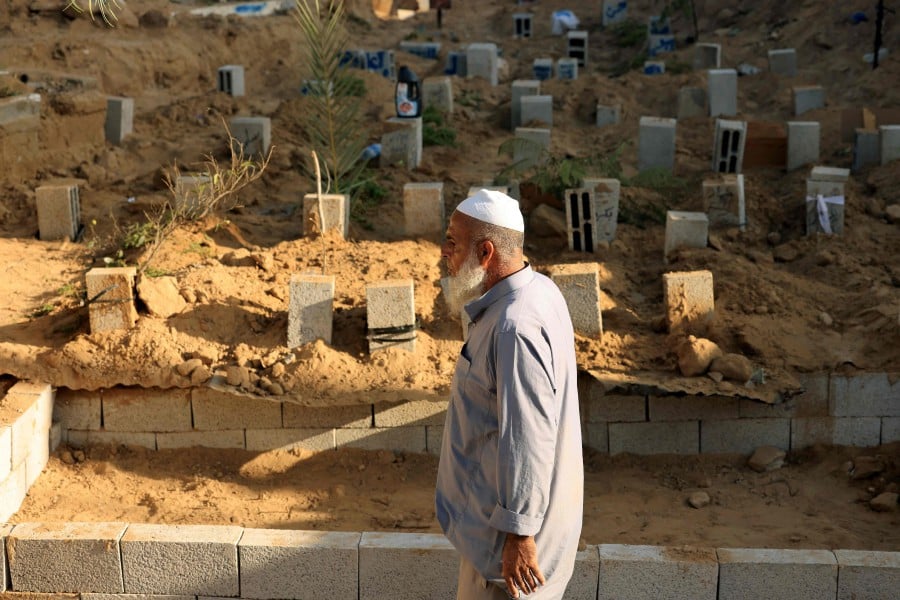GAZA CITY: Mass graves have become a necessary solution for Gazans, who are confronted with a staggering number of victims as they enter the second month of a devastating barrage of missiles and airstrikes by Israel.
Saadi Baraka, a 63-year-old Palestinian gravedigger, spoke to Anadolu Agency about the large number of children and women he has had to bury since the start of the war on Oct 7.
Despite spending his life in the gravedigging profession, he said what he is currently witnessing is "beyond compare" to anything in the past, to the extent that he cannot sleep or eat.
Amid all attempts to frame the war as targeting Hamas' "objectives," its fighters, tunnels, weapons and centres, the truth is, according to official figures, the majority of Gaza's population consist of women and children.
The reality has led to a major tragedy, with at least 70 per cent of victims of Israeli airstrikes being children and women.
"We were forced to do this (mass graves). There is no place to accommodate these numbers of bodies every day, and there are no blocks (cement slabs placed on top of bodies in graves). Everything has run out in Gaza," said Baraka.
"Yesterday, I buried almost 600 martyrs, more than I have buried in the past five years. I have not seen such brutality. The majority of those I buried were women and children," he said.
According to Baraka, "each mass grave is about 6 metres in size, and around 45 people are buried in it. The largest mass grave accommodated 137 people."
Regarding the necessity to dig mass graves, he said: "There are no raw materials left; nothing remains in Gaza. Even water is no longer available."
As for unidentified bodies, he noted they are buried like others, and he ruled out the possibility of exhuming graves after the war to identify the bodies.
Baraka told Anadolu about his distress during his long work days.
"I can't sleep due to the large number of child corpses I have seen. What is the fault of these children?" he said.
"We do not seek aid and food. We have been striving for peace since the days of Abu Ammar (the late Palestinian President Yasser Arafat). Meanwhile, Netanyahu only pursues bloodshed," he said.
"We seek to live with dignity and freedom, to have a state, sovereignty. I want to be a citizen like any other in the world. Those sending aid should consider it more fitting to allow us to live as citizens in our own country, just as is the case in any other nation," he added. – BERNAMA-ANADOLU


